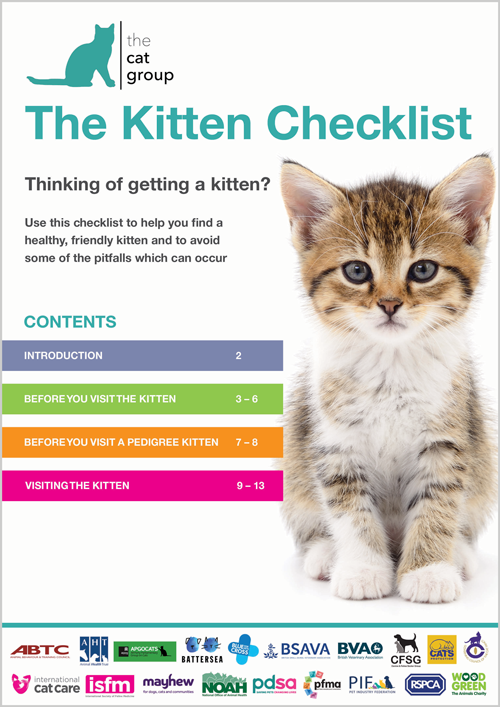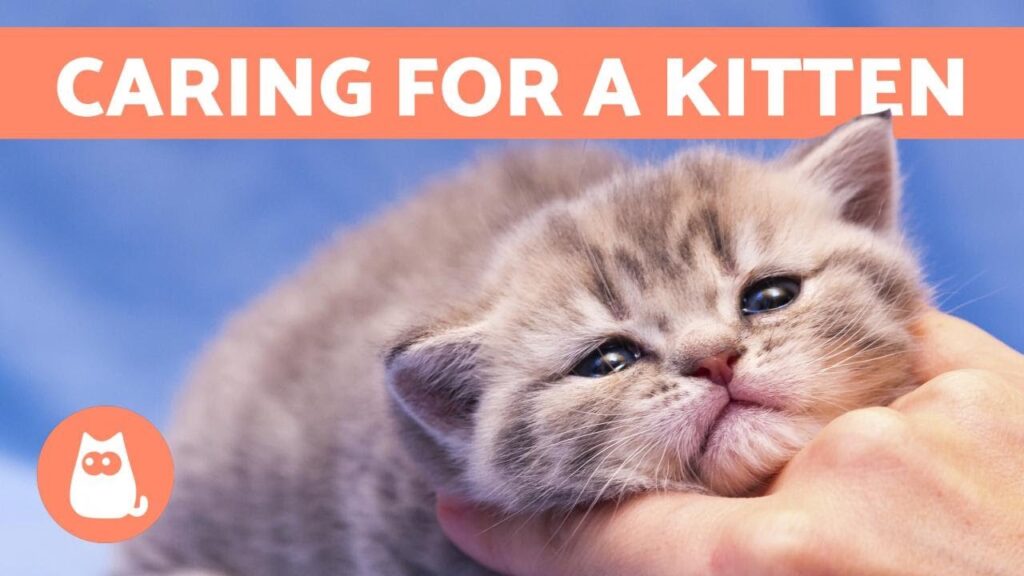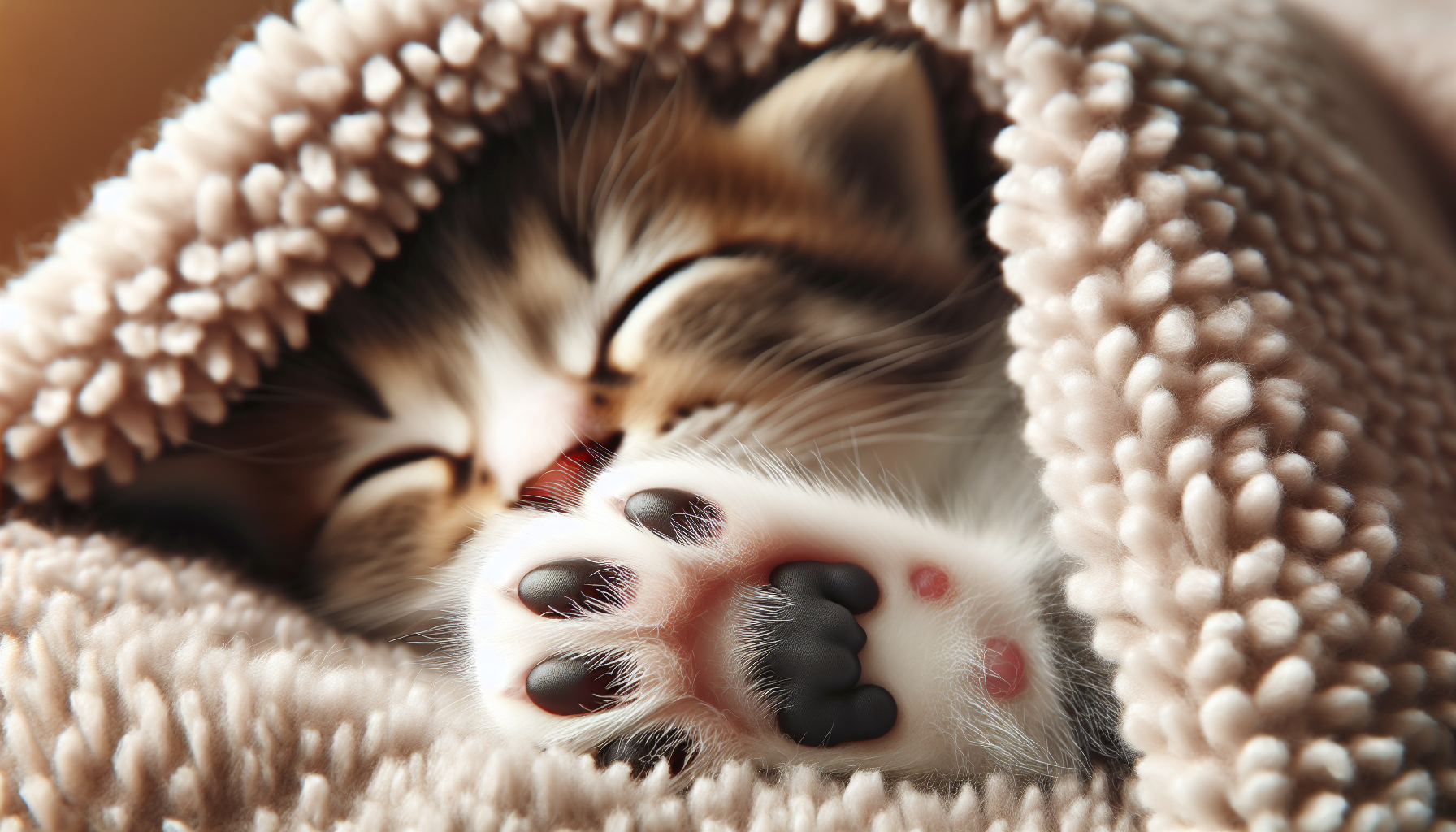If you’re lucky enough to have a tiny bundle of fur enter your life in the form of a playful kitten, you may quickly find yourself marveling at their cuteness while also feeling a bit overwhelmed. As adorable as they may be, kittens require proper care and attention to grow into healthy and happy cats. Whether you’re a first-time kitten owner or looking to refresh your knowledge, this article will provide you with practical tips and advice on how to take care of these adorable little creatures. From feeding them a balanced diet to socializing them with humans and other animals, we’ll cover all the essentials to ensure your furry friend thrives in their new environment. So grab a pen and paper – it’s time to learn how to be the best kitten parent you can be!
Preparing for a Kitten
Congratulations on the decision to bring a furry bundle of joy into your home! Before you bring your new kitten home, it’s important to make sure you are fully prepared.
Choosing the Right Kitten
The first step in preparing for a kitten is to choose the right one for you and your family. Consider factors such as age, breed, and temperament when selecting your new feline companion. Spend time with different kittens to see which one best matches your lifestyle and personality. Remember, this is a long-term commitment, so choose wisely!
Setting Up a Safe Environment
Creating a safe environment is essential for your kitten’s well-being. Make sure your home is kitten-proofed by removing any potential hazards such as toxic plants, chemicals, and small objects that could be swallowed. Keep fragile items out of reach and secure dangerous household items like cleaning supplies and medications. Consider setting up a designated space for your kitten with a comfortable bed, litter box, and toys.
Gathering Essential Supplies
To ensure a smooth transition, it’s important to gather all the necessary supplies before your kitten arrives. Start with the basics such as food and water bowls, a litter box, and litter. You’ll also need toys for mental stimulation, a scratching post, and a cozy bed. Don’t forget about grooming supplies like a brush and nail clippers. Having all these supplies ready will help your kitten feel welcome and comfortable in their new home.
Feeding and Nutrition
Proper nutrition is crucial for your kitten’s growth and development. Here are some guidelines to ensure they receive the best possible care:
Selecting the Right Kitten Food
When it comes to choosing the right kitten food, opt for a high-quality, age-appropriate option. Look for brands that specifically mention “kitten” on the packaging. These foods are specially formulated to meet the unique nutritional needs of growing kittens. Consult your veterinarian to determine the best food for your kitten’s specific requirements.
Establishing a Regular Feeding Schedule
Establishing a regular feeding schedule is important for your kitten’s overall well-being. Kittens typically need to be fed more frequently than adult cats, usually three to four times a day. Set specific meal times and stick to them to help regulate their digestion and create a routine. Monitor their appetite and adjust the portion sizes accordingly.
Monitoring the Kitten’s Food Intake
Keep track of your kitten’s food intake and make sure they are eating enough to support their growth. It’s important to follow the feeding guidelines on the food packaging and adjust as necessary. Overfeeding can lead to obesity, while underfeeding can stunt their growth. Pay attention to any changes in appetite, weight, or behavior and consult your veterinarian if you have any concerns.

Hygiene and Grooming
Maintaining proper hygiene is not only important for your kitten’s appearance but also for their overall health and well-being. Here are some essential grooming practices to keep in mind:
Litter Box Training
Litter box training is an essential part of caring for your kitten. Choose a suitable litter box and place it in a quiet, easily accessible area. Show your kitten the litter box and gently place them in it after meals or naps. Be patient and consistent, praising them when they use the litter box correctly. Clean the litter box regularly to keep it fresh and inviting.
Bathing and Brushing
Most kittens are expert self-groomers, but occasional bathing and brushing are still necessary. Use a mild, kitten-safe shampoo and warm water when bathing. Be gentle and ensure the water temperature is comfortable for your kitten. Brushing your kitten regularly helps prevent mats, remove loose fur, and promote a healthy coat. Use a soft brush designed for kittens to avoid causing any discomfort.
Nail Trimming
Regular nail trimming is important to prevent your kitten’s nails from becoming too long or sharp. Invest in a pair of small, kitten-specific nail clippers and familiarize yourself with the proper technique. Gently hold your kitten’s paw and trim only the translucent portion of the nail, avoiding the quick. Take it slow and reward your kitten with treats and praise to make nail trims a positive experience.
Socialization and Play
Socializing and playing with your kitten is crucial for their emotional and mental development. Here are some tips to help you create a strong bond with your furry friend:
Introducing the Kitten to Other Pets
If you have other pets at home, a proper introduction is key to a harmonious household. Gradually introduce your kitten to your other pets, allowing supervised interactions. Use scent swapping by exchanging bedding and gradually increase the length of their interactions. Reward positive behavior and be patient as your pets adjust to the new addition.
Interacting and Bonding with the Kitten
Spend quality time with your kitten to build a strong bond. Engage in interactive play using toys that encourage their natural instincts, such as feathers or toys on strings. Gently pet and cuddle your kitten to help them feel secure and loved. Talk to them in a soothing voice and let them explore their environment under your watchful eye.
Providing Mental Stimulation and Playtime
Kittens have abundant energy and need plenty of mental and physical stimulation. Provide toys that encourage exercise and mental engagement, such as puzzle toys or treat-dispensing toys. Incorporate playtime into your daily routine, ensuring they have opportunities to climb, scratch, and explore. Use interactive toys that mimic hunting behavior to keep them entertained and satisfied.
Healthcare and Vaccinations
Keeping your kitten healthy is a top priority. Here’s what you need to know about their healthcare and vaccinations:
Choosing a Veterinarian
Finding a trusted veterinarian is essential for your kitten’s long-term health and well-being. Ask for recommendations from friends, family, or local animal shelters. Schedule an initial visit to ensure you and your kitten are comfortable with the veterinary practice. A good veterinarian will provide essential vaccinations, preventive care, and be available for any emergency situations.
Scheduling Vaccinations
Vaccinations are crucial for protecting your kitten from various infectious diseases. Consult your veterinarian to create a vaccination schedule based on your kitten’s age, health history, and lifestyle. Common vaccines for kittens include those for feline viral rhinotracheitis, calicivirus, panleukopenia, and rabies. Follow the recommended vaccine schedule and keep track of upcoming vaccinations.
Monitoring the Kitten’s Health
Regularly monitoring your kitten’s health is important for detecting any potential issues early on. Keep an eye on their eating habits, bathroom habits, coat condition, and general behavior. Look out for any signs of illness such as lethargy, loss of appetite, vomiting, or diarrhea. Contact your veterinarian if you notice any concerning symptoms, as prompt medical attention can make all the difference.
Preventing Common Hazards
Creating a safe environment for your kitten is essential to prevent accidents and injuries. Consider the following measures to keep your curious feline out of harm’s way:
Identifying and Removing Toxic Plants
Certain plants can be toxic to cats if ingested. Research common houseplants and garden plants to identify any that may pose a risk. Remove or securely place these plants out of your kitten’s reach. Opt for pet-friendly alternatives to ensure a safe environment.
Securing Dangerous Household Items
Secure dangerous household items such as cleaning supplies, medications, and chemicals to prevent your kitten from ingesting toxins. Store these items in locked cabinets or out of reach. Be mindful of foods that are toxic to cats, such as chocolate, onions, and grapes, and ensure they are also kept safely stored away.
Keeping the Kitten Away from Electrical Cords
Kittens are naturally curious and may chew on electrical cords, leading to potential electrical shocks or injuries. Hide or secure cords behind furniture or use cord protectors to prevent access. Consider redirecting your kitten’s attention to appropriate toys and scratching posts to discourage chewing on cords.

Training and Discipline
Proper training and discipline are essential for a well-behaved and happy kitten. Here are some tips to guide you:
Teaching Basic Commands
Start training early by teaching your kitten basic commands such as “sit,” “stay,” and “come.” Use positive reinforcement techniques, such as treats and praise, to reward desired behavior. Keep training sessions short and enjoyable to maintain your kitten’s attention span and motivation.
Discouraging Undesirable Behavior
Kittens may engage in undesirable behaviors such as scratching furniture or biting. Encourage positive alternatives by providing appropriate scratching posts and toys. Use deterrents such as double-sided tape or repellent sprays on furniture to discourage scratching. Avoid punishment and instead redirect their behavior to prevent frustration or fear.
Using Positive Reinforcement
Positive reinforcement is a key training tool for kittens. Reward desired behaviors promptly with treats and praise to reinforce good habits. It’s important to be consistent and patient while training. Remember, kittens respond best to gentle guidance and positive reinforcement.
Dealing with Health Issues
Your kitten’s health may require special attention at times. Here’s what you need to know about managing common health issues:
Recognizing Signs of Illness
As a responsible pet owner, it’s important to recognize signs of illness in your kitten. Watch for symptoms such as decreased appetite, lethargy, coughing, sneezing, vomiting, diarrhea, or changes in litter box habits. Contact your veterinarian if you notice any concerning signs, as early detection and treatment can lead to better outcomes.
Handling Common Health Problems
Common health problems that kittens may experience include parasites, such as fleas or worms, respiratory infections, or urinary tract issues. Follow your veterinarian’s recommendations for preventive treatments, such as flea control and deworming. Administer medications as prescribed and provide a comfortable and stress-free environment for your kitten’s recovery.
Knowing When to Seek Veterinary Care
Trust your instincts when it comes to your kitten’s health. If you notice significant changes in behavior, appetite, or appearance, don’t hesitate to contact your veterinarian. Kittens can deteriorate quickly, so it’s important to seek veterinary care promptly. Your veterinarian is the best source of advice and treatment for any health concerns.

Preparing for Growth and Development
Kittens grow and develop rapidly during their first year of life. Here are some considerations to keep in mind as your kitten enters various stages of growth:
Providing a Suitable Environment for Growth
As your kitten grows, ensure that their environment can accommodate their changing needs. Provide plenty of vertical space, such as cat trees or shelves, for climbing and perching. Keep toys and scratching posts accessible and engage in interactive play to encourage exercise and mental stimulation.
Adjusting the Kitten’s Diet as They Grow
As your kitten grows, their dietary needs will change. Consult your veterinarian for guidance on transitioning to adult cat food. Adjust portion sizes accordingly to maintain a healthy weight. Provide fresh water at all times and monitor your cat’s weight and body condition to ensure they are growing properly.
Monitoring and Supporting Physical Development
Keep an eye on your kitten’s physical development as they grow. Monitor their weight, body condition, and overall physical appearance. Regularly check their teeth and gums to ensure proper oral health. Provide opportunities for exercise and be mindful of any signs of joint or mobility issues. Regular veterinary check-ups will help ensure your kitten’s development is on track.
Spaying or Neutering
Spaying or neutering your kitten is an important decision that has long-term benefits. Here’s what you need to know:
Understanding the Importance of Spaying or Neutering
Spaying or neutering your kitten provides several benefits, including preventing unwanted pregnancies, reducing the risk of certain types of cancer, and decreasing certain behavioral issues. Spaying also eliminates the heat cycle in female cats, which can be physically and psychologically stressful. Neutering male cats reduces the likelihood of roaming and aggressive behavior.
Choosing the Right Timing
Consult your veterinarian to determine the best timing for spaying or neutering your kitten. The ideal age can vary depending on various factors, such as their breed and overall health. The procedure is typically performed between four to six months of age. Your veterinarian will guide you through the process and answer any questions or concerns you may have.
Finding a Reliable Veterinary Clinic
When it comes to spaying or neutering, choose a reliable veterinary clinic with experienced professionals. Ask for recommendations or check reviews from other pet owners. The clinic should prioritize the safety and well-being of your kitten during the procedure. Don’t hesitate to ask questions about the surgical process, aftercare, and potential risks.
Taking care of a kitten is a rewarding experience, but it requires time, effort, and commitment. By following these guidelines for preparing, feeding, grooming, socializing, and ensuring proper healthcare, you’ll be well-equipped to provide a loving and nurturing environment for your adorable new furry friend. Enjoy the journey of watching your kitten grow into a happy and healthy cat!





